Smartphones & Tablets | February 17, 2024
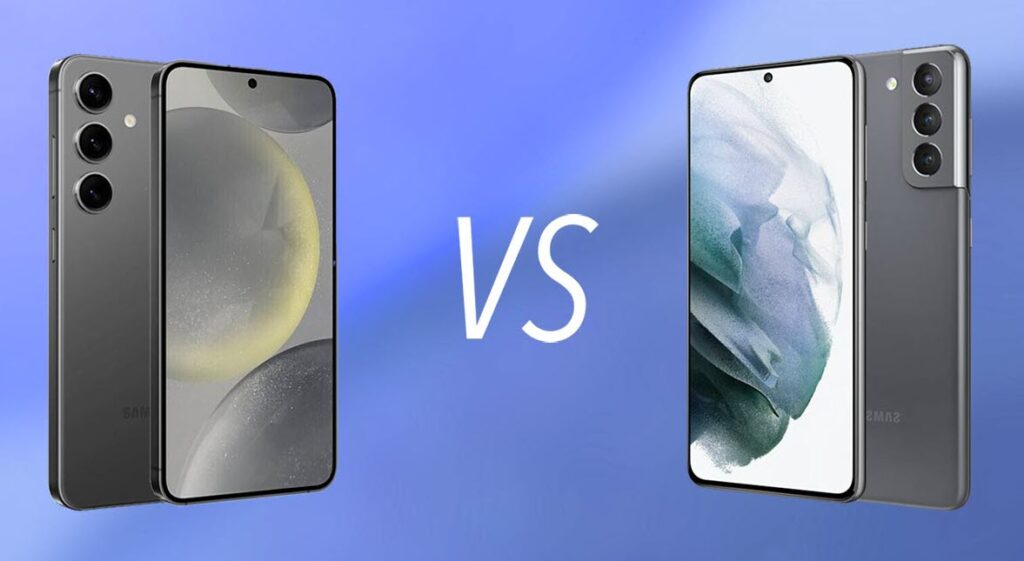
| Samsung Galaxy S24 | Samsung Galaxy S21 | |
| Screen | 6.2 inches of Dynamic AMOLED 2X technology, 19.5:9 format, FullHD+ resolution of 2,340 x 1,080 pixels, 120 Hz adaptive refresh rate, 240 Hz touch sampling rate, 2,600 nits maximum brightness, HDR10+ and Corning Gorilla protection Glass Victus 2 | 6.2 inches of Dynamic AMOLED 2X technology, 20:9 format, FullHD+ resolution of 2,400 x 1,080 pixels, 120 Hz adaptive refresh rate, 240 Hz touch sampling rate, 1,300 nits maximum brightness, HDR10+ and Corning Gorilla protection Glass Victus |
| Main camera | – 50 megapixel main sensor with f/1.8 focal aperture with video recording capacity in 8K resolution at 24 frames per second – 10 megapixel, 3x magnification (3X) telephoto secondary sensor with f/2.4 focal aperture – Wide angle tertiary sensor 12 megapixels with f/2.2 aperture and 120° field of view | – 12 megapixel main sensor with f/1.8 focal aperture with video recording capacity in 8K resolution at 24 frames per second – Secondary sensor with 64 megapixel telephoto lens with f/2.0 focal aperture and 3X optical zoom – Tertiary sensor with 12 megapixel wide-angle lens with f/2.4 focal aperture and 120° field of view |
| Selfie camera | 12 megapixel main sensor with f/2.2 focal aperture with video recording capacity in 4K resolution at 60 frames per second | 10 megapixel main sensor with f/2.2 focal aperture with video recording capacity in 4K resolution at 60 frames per second |
| Internal memory | – 128 (UFS 3.1) – 256 GB (UFS 4.0) | 128 or 256 GB UFS 3.1 |
| Extension | Not available | Not available |
| Processor and RAM memory | – 4-nanometer, eight-core Exynos 2400 at 3.1 GHz max. – 8 GB of LPDDR5X type RAM | – 5-nanometer, eight-core Exynos 2200 at 2.9 GHz max. (Europe and other regions) – 5-nanometer, eight-core Qualcomm Snapdragon 888 at 2.84 GHz max. (United States / China / Latin America) – 8 GB of LPDDR5 RAM |
| Battery | 4,000 mAh with 25W wired fast charging, 10W wireless charging and 4.5W reverse wireless charging (charger not included in the box) | 4,000 mAh with 25W wired fast charging, 15W wireless charging and 4.5W reverse wireless charging (charger not included in the box) |
| OS | Android 14 under One UI 6.1 | Android 12 under One UI 5 |
| Connections | 5G, 4G LTE, dual-band WiFi 802.11 a/b/g/n/ac/6E, Bluetooth 5.3, GPS + GLONASS, NFC for contactless payments and USB type C input | 5G, 4G LTE, dual-band WiFi 802.11 a/b/g/n/ac/6, Bluetooth 5.0, GPS + GLONASS, NFC for contactless payments and USB type C input |
| SIM | Dual nano SIM | Dual nano SIM |
| Design | Colors: black, gray, yellow and purple | Colors: white, gray, violet and pink |
| Dimensions and weight | 147 x 70.6 x 7.6 millimeters and 167 grams | 151.7 x 71.2 x 7.9 millimeters and 169 grams |
| Featured Features | Under-display ultrasonic fingerprint sensor, AKG stereo speakers, and IP68 waterproof rating (submergence-proof) | Under-display ultrasonic fingerprint sensor, AKG stereo speakers, IP68 water resistance (submergence-proof), and FM radio (Snapdragon processor model only) |
| Release date | Available | Available |
| Price | From 960 euros | From 500 euros |
The Galaxy S24 is now a reality. For this new generation, the manufacturer’s bet has been rather contained, at least compared to the Galaxy S23. In other words, Samsung has focused part of its innovations on the interior and some design details, as well as artificial intelligence. However, for those who own a Galaxy S21, the debate revolves around whether it’s worth upgrading the device after three years on the market. To answer this question, we have analyzed all the differences between the Samsung Galaxy S24 vs S21.
Galaxy S21 vs S24, Samsung S24 vs S21, Galaxy S24 vs Galaxy S21… There are more differences between the Samsung Galaxy S21 vs Galaxy S24 than meet the eye. This analysis will break them down in detail, section by section.
The brand-new Samsung Galaxy S24 maintains the design line, showing clear similarities with its predecessors, the Galaxy S23 and the Galaxy S22, which the previous year barely introduced notable aesthetic changes. However, the main difference is found in the rear camera module, which is integrated directly into the chassis. On the other hand, the Galaxy S21 stands out for its rounded edges, which offer a more pleasant ergonomic sensation compared to the Galaxy S24, which is more square and adapted to modern times.
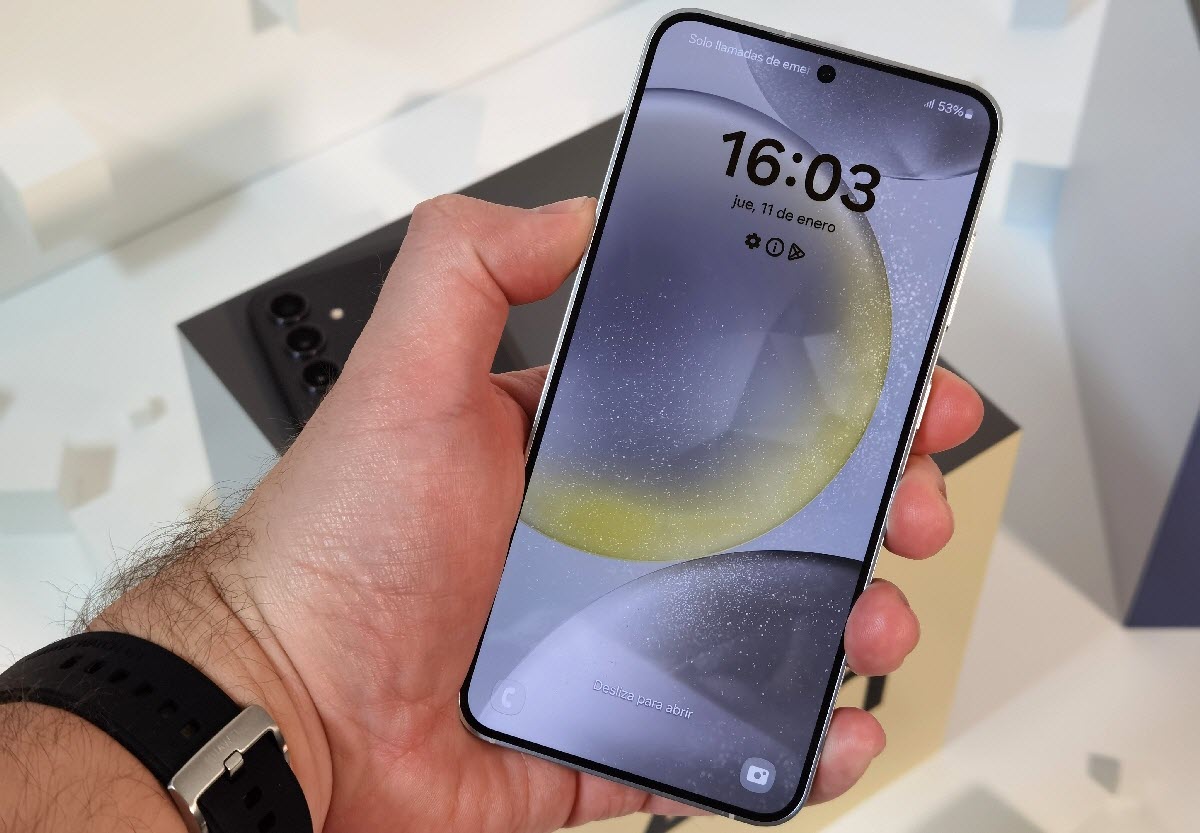
And what about their dimensions? When examining the measurements and weight of both devices, the differences are practically nonexistent, as they have screens of similar size and thin bezels that optimize the front space. In general terms, the Samsung S21 is taller, wider, and thicker; nothing alarming, in any case.
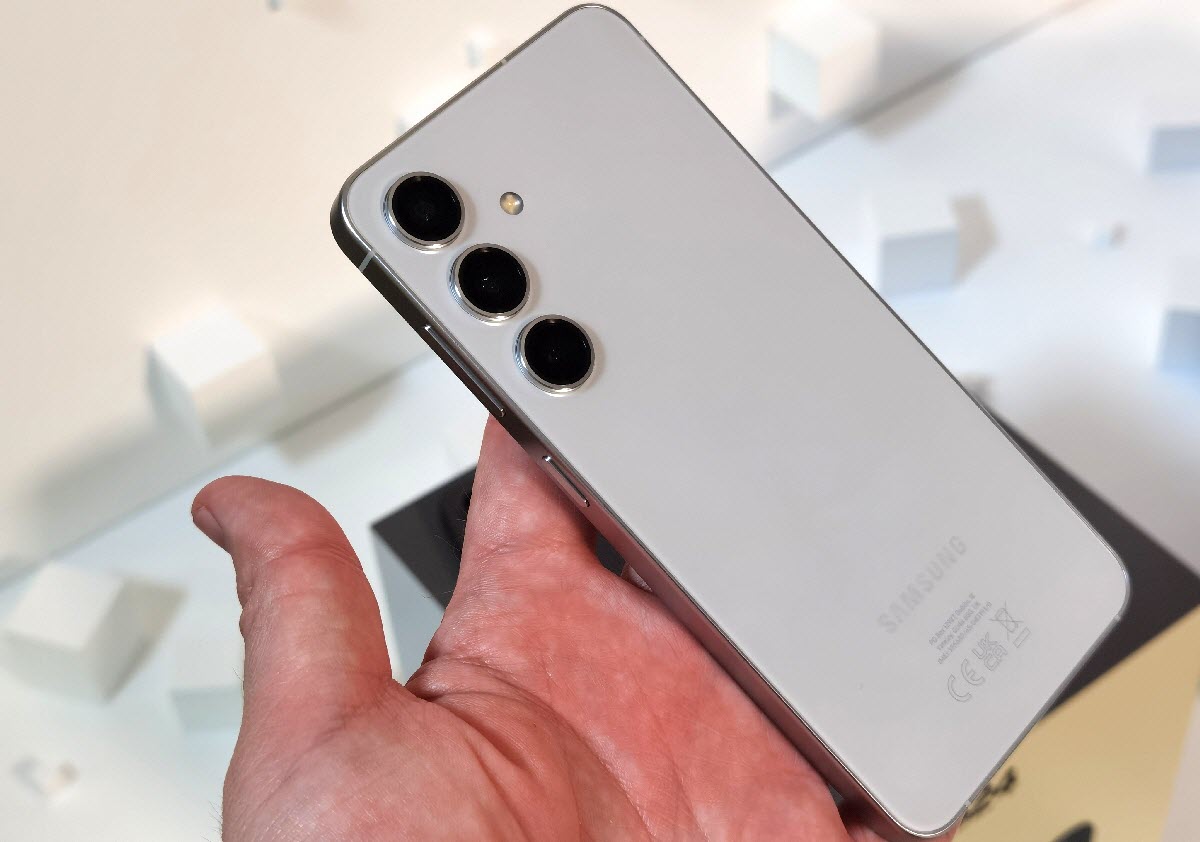
The rest of the details also have some relation to each other: ultrasonic fingerprint sensor, absence of a headphone jack, IP68 protection… Perhaps the most notable thing is that the S24 features an updated version of the Corning Gorilla Glass Victus protection applied to the screen.
That’s right. The screen of the Galaxy S24, which it shares with its predecessor, the Galaxy S23, has a slightly larger diagonal of 6.2 inches, which is the same as that of the S21, plus a Full HD+ resolution and an adaptive refresh rate of up to 120 Hz. However, while the 2020 model did not have LTPO technology, this latest one integrates it as the main feature, allowing for a real-time jump from 1 to 120 Hz, with consequent energy savings.
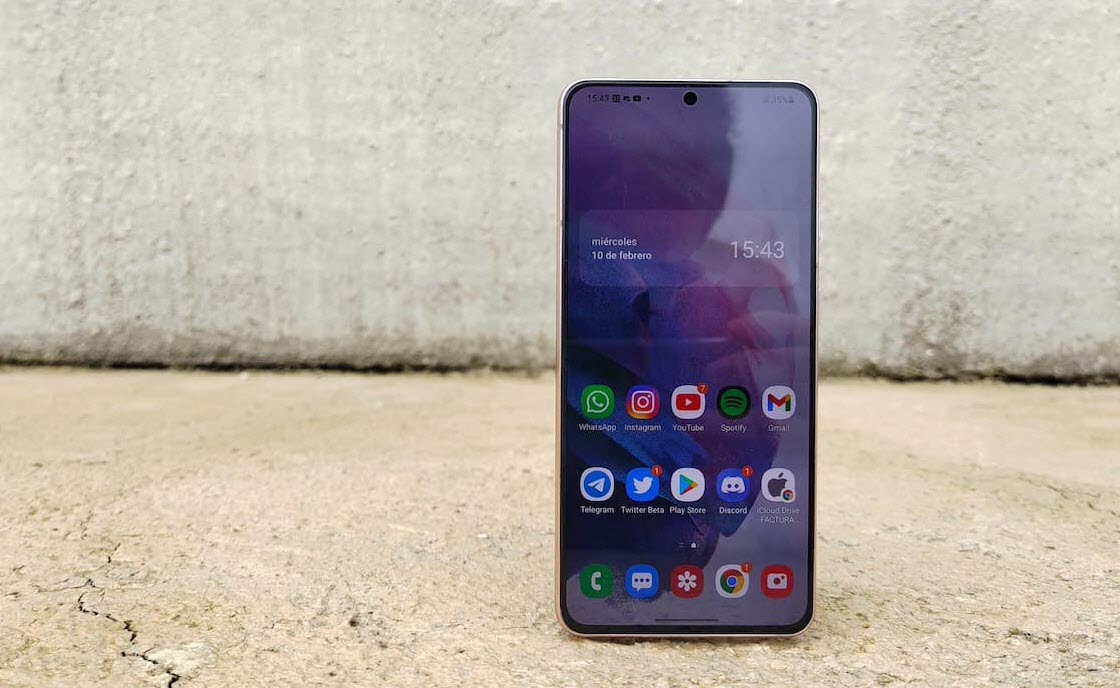
The other big difference is found in the maximum brightness level. The Galaxy S21 can project up to 1,600 nits, compared to the 2,600 nits of the new iteration. The technology remains Dynamic AMOLED, although due to this higher brightness capacity, it is likely to offer a wider contrast. Improvements in the fingerprint sensor recognition speed are also expected.
Samsung has taken a step that has been rumored for some time: the abandonment of Qualcomm in its non-Ultra versions. Instead, the company has opted for its own processors, which historically have lagged behind in terms of performance compared to Snapdragon. In this case, the Galaxy S24 exclusively relies on the Exynos 2400, while the Galaxy S21 comes standard with the Exynos 2100, at least in Europe. On paper, the company’s latest chip offers more than double the performance, at least according to Antutu tests.
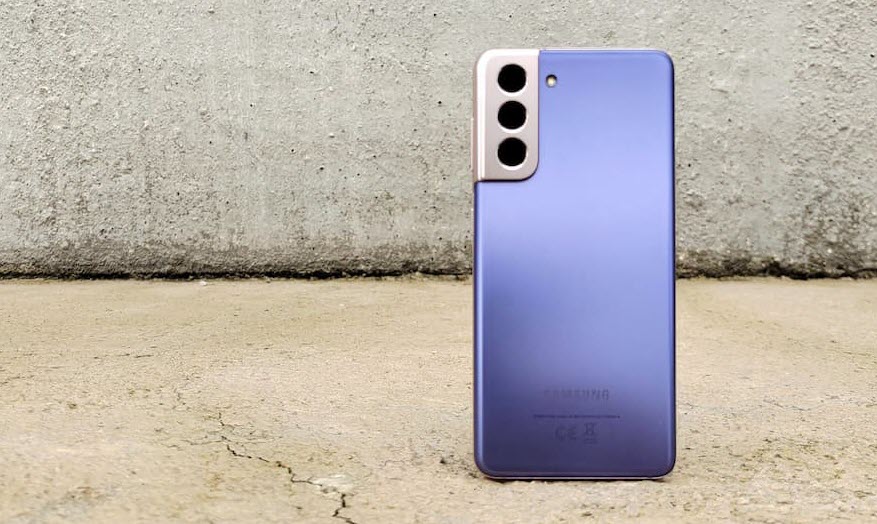
In terms of memory, the Galaxy S24 offers 8 GB of LPDDR5X RAM and internal storage options of 128 GB under the UFS 3.1 standard and 256 GB operating on UFS 4.0 technology. As for the Galaxy S21, it features 8 GB of LPDDR5 RAM and options of 128 GB or 256 GB, both of the UFS 3.1 type. However, neither supports memory expansion via micro SD cards.
There is also good news regarding the software. Everything indicates that Android 14 will be the last version to arrive on the Galaxy S21, while its older sibling will enjoy no less than seven years of updates. That is, it could be updated up to Android 21.
Let’s talk about data first, since we have already discussed at length the AI features of the Galaxy S24 in its corresponding article. This includes a camera setup consisting of a 50-megapixel main sensor with an aperture of f/1.8, capable of recording videos in impressive 8K resolution at 24 frames per second. It is accompanied by a 10-megapixel telephoto sensor with three times optical zoom and a focal aperture of f/2.4, and a sensor with a wide-angle lens of 12 megapixels with an aperture of f/2.4.
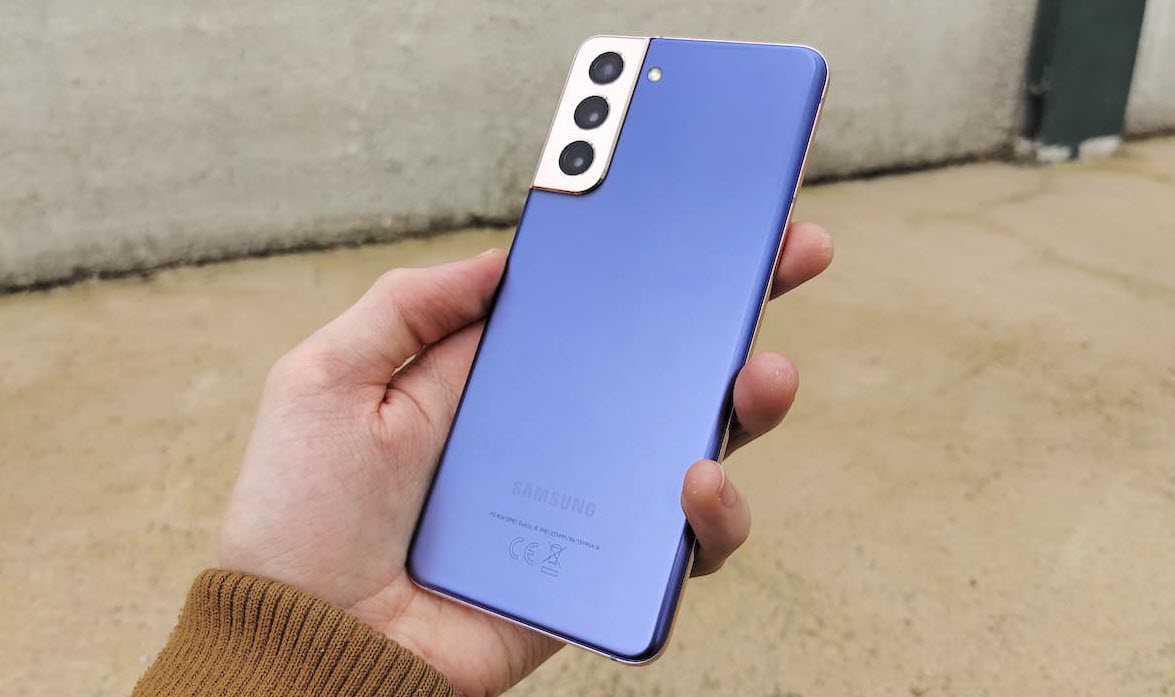
In contrast, the Galaxy S21 features a 12-megapixel main sensor, also capable of recording 8K videos at 24 frames per second, with an aperture of f/1.8. However, its telephoto reaches 64 megapixels, with an aperture of f/2.0 and a modest optical zoom of 1.1X, but with support for a hybrid zoom of up to 3X. Finally, its wide-angle is 12 megapixels, with an aperture of f/2.2.
Regarding the front cameras, the Galaxy S24 features a 12-megapixel one, while the Galaxy S21 has a 10-megapixel one, both with an aperture of f/2.2. Both devices are capable of recording videos in 4K at 60 frames per second.
Especially because they have the same specifications. The S23 already reduced the battery capacity from 4,000 to 3,900 mAh. This new generation recovers those 4,000 mAh from the Galaxy S21, although everything indicates that the greater efficiency of its processor should yield better results. The same goes for charging, whose figures are replicated both in the Galaxy S21 and in the S24: 25 W by cable, 10 W wireless, and 4.5 W reversible.
Having known all the differences between the Samsung Galaxy S24 vs S21, it’s time to draw our conclusions. You have a Galaxy S21 and don’t know if upgrading to this model for the not negligible amount of 960 euros is worth it. Is the Samsung S24 worth it?
they are not very different models. There are obvious improvements in performance, photographic quality, and screen. And certainly, the manufacturer’s promise to update the device for up to seven years and the artificial intelligence novelties are a great incentive. If we finally opt for the latter, it would be advisable to wait a few weeks for its price to be reduced or to approach 800 or 850 euros.